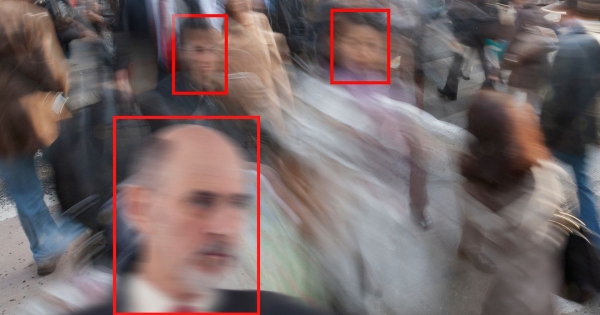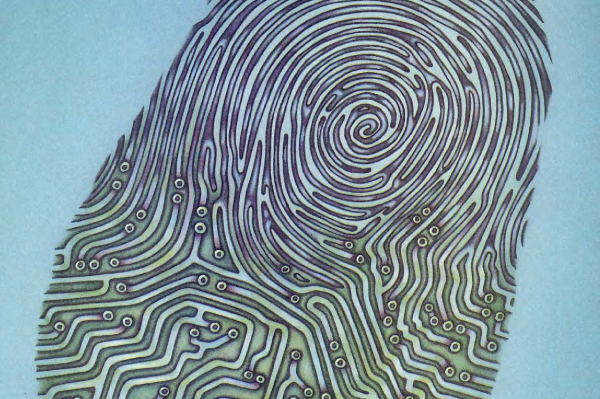Suche
Beiträge, die mit biometrics getaggt sind
"With the ongoing expansion of GPS tagging under the UK Home Office’s electronic monitoring programme, the Home Office has increasingly deployed non-fitted devices (NFDs) that track a person’s GPS location and request frequent biometric verification in the form of fingerprint scans.
The NFDs deployed by the UK Home Office are small handheld devices with a fingerprint scanner that record a person’s location 24/7 (referred to as their trail data). Most recently, migrants are being provided with Android mobile phones equipped with a fingerprint scanner at the back, which are also equipped with 24/7 GPS tracking technology. The devices alert the person at random intervals throughout the day requesting their fingerprint scan, which it then compares against a representation of the biometric information stored on the device. This is in order to verify that the person has the device with them at all times for the purposes of tracking.
Previous research PI did in relation to the NFDs determined that these alerts are sent to the wearer up to 5 times per day. Although as set out below, there are reports that individuals are in fact being sent many more alerts than this in a given day. Those subjected to these devices have cited detrimental impacts to their daily life and mental and physical wellbeing, due to the pervasive and erratic nature of these devices."
https://edri.org/our-work/non-fitted-devices-in-the-uk-home-offices-surveillance-arsenal-investigating-the-technology-behind-gps-fingerprint-scanners/
#UK #PoliceState #NFDs #GPS #Biometrics #Fingerprints
The NFDs deployed by the UK Home Office are small handheld devices with a fingerprint scanner that record a person’s location 24/7 (referred to as their trail data). Most recently, migrants are being provided with Android mobile phones equipped with a fingerprint scanner at the back, which are also equipped with 24/7 GPS tracking technology. The devices alert the person at random intervals throughout the day requesting their fingerprint scan, which it then compares against a representation of the biometric information stored on the device. This is in order to verify that the person has the device with them at all times for the purposes of tracking.
Previous research PI did in relation to the NFDs determined that these alerts are sent to the wearer up to 5 times per day. Although as set out below, there are reports that individuals are in fact being sent many more alerts than this in a given day. Those subjected to these devices have cited detrimental impacts to their daily life and mental and physical wellbeing, due to the pervasive and erratic nature of these devices."
https://edri.org/our-work/non-fitted-devices-in-the-uk-home-offices-surveillance-arsenal-investigating-the-technology-behind-gps-fingerprint-scanners/
#UK #PoliceState #NFDs #GPS #Biometrics #Fingerprints

UK: Investigating the technology behind GPS fingerprint scanners - European Digital Rights (EDRi)
The use of NFDs is an expansion beyond the use of GPS ankle tags of the UK’s surveillance of migrants who are on immigration bail.European Digital Rights (EDRi)
"The rapid expansion of educational technologies (EdTech) has introduced serious concerns about human rights protection in educational spaces. This briefing explores the impact of facial recognition technology (FRT) and heightened surveillance in these settings, highlighting many complex and multifaceted issues that demand careful consideration from a human rights perspective.
From the erosion of privacy and the securitisation of educational spaces - that undermines the learning and growth processes - to the perpetuation of bias and discrimination, and the lack of data protection safeguards, not to mention the role of private interests, this briefing explains why we believe that iIt is crucial to ban FRT in educational spaces and stop its use now.
At the end of the briefing, we share a roadmap of key issues that it is necessary to consider for anyone thinking of introducing FRT in educational spaces to help analyse its impact on human rights."
https://privacyinternational.org/advocacy/5469/pis-briefing-critical-examination-facial-recognition-implementation-educational
#UK #FacialRecognition #Biometrics #Surveillance #Privacy #FRT
From the erosion of privacy and the securitisation of educational spaces - that undermines the learning and growth processes - to the perpetuation of bias and discrimination, and the lack of data protection safeguards, not to mention the role of private interests, this briefing explains why we believe that iIt is crucial to ban FRT in educational spaces and stop its use now.
At the end of the briefing, we share a roadmap of key issues that it is necessary to consider for anyone thinking of introducing FRT in educational spaces to help analyse its impact on human rights."
https://privacyinternational.org/advocacy/5469/pis-briefing-critical-examination-facial-recognition-implementation-educational
#UK #FacialRecognition #Biometrics #Surveillance #Privacy #FRT
"The UK is "veering dangerously close to becoming a police state" because of facial scanners being used in high streets, MPs have heard.
Calls have been mounted for live facial recognition technology to be halted amid questions over accuracy and privacy. The software - currently being deployed in London, South Wales and Essex - allows officers to scan the faces of passers-by and check them against watchlists.
Several MPs raised concerns about software misidentifying innocent members of the public - particularly Black, Asian and minority ethnic groups. Labour MP Bell Ribeiro-Addy said: "We're veering dangerously close to becoming a police state with levels of surveillance that would only be deemed acceptable in the most autheritarian police states. It's not a matter of 'those with nothing to hide have nothing to fear', it's a matter of our basic privacy."
She pointed to research by campaign group Big Brother Watch which found 89% of facial recognition alerts to date wrongly identified members. Tory Shadow Home Secretary Chris Philp said current software is far more accurate."
https://www.mirror.co.uk/news/politics/uk-veering-towards-police-state-34098123
#UK #PoliceState #Surveillance #FacialRecognition #Biometrics
Calls have been mounted for live facial recognition technology to be halted amid questions over accuracy and privacy. The software - currently being deployed in London, South Wales and Essex - allows officers to scan the faces of passers-by and check them against watchlists.
Several MPs raised concerns about software misidentifying innocent members of the public - particularly Black, Asian and minority ethnic groups. Labour MP Bell Ribeiro-Addy said: "We're veering dangerously close to becoming a police state with levels of surveillance that would only be deemed acceptable in the most autheritarian police states. It's not a matter of 'those with nothing to hide have nothing to fear', it's a matter of our basic privacy."
She pointed to research by campaign group Big Brother Watch which found 89% of facial recognition alerts to date wrongly identified members. Tory Shadow Home Secretary Chris Philp said current software is far more accurate."
https://www.mirror.co.uk/news/politics/uk-veering-towards-police-state-34098123
#UK #PoliceState #Surveillance #FacialRecognition #Biometrics

UK 'veering towards a police state' as our faces are being scanned in street
Labour MP Bell Ribeiro-Addy voiced alarm over 'potentially flawed' police technology that scans faces in crowds amid calls to halt its useThe Mirror
1985 Print Circuit Life
The image represents a printed circuit board design overlaid with fingerprint patterns, symbolizing the intersection of human identity and technology.
https://friendica-leipzig.de/photo/media/255706
#photography #illustration #madman #nocontext #sfw #biometrics #digitalidentities #technologicalconvergence #uniqueidentifiers
The image represents a printed circuit board design overlaid with fingerprint patterns, symbolizing the intersection of human identity and technology.
https://friendica-leipzig.de/photo/media/255706
#photography #illustration #madman #nocontext #sfw #biometrics #digitalidentities #technologicalconvergence #uniqueidentifiers


